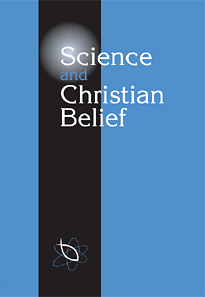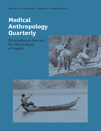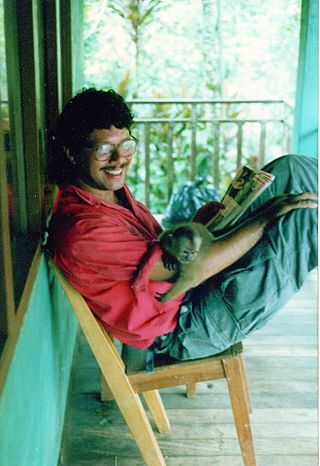
Science, also widely referred to as Science Magazine, is the peer-reviewed academic journal of the American Association for the Advancement of Science (AAAS) and one of the world's top academic journals. It was first published in 1880, is currently circulated weekly and has a subscriber base of around 130,000. Because institutional subscriptions and online access serve a larger audience, its estimated readership is over 400,000 people.

The American Anthropological Association (AAA) is an organization of scholars and practitioners in the field of anthropology. With 10,000 members, the association, based in Arlington, Virginia, includes archaeologists, cultural anthropologists, biological anthropologists, linguistic anthropologists, linguists, medical anthropologists and applied anthropologists in universities and colleges, research institutions, government agencies, museums, corporations and non-profits throughout the world. The AAA publishes more than 20 peer-reviewed scholarly journals, available in print and online through AnthroSource. The AAA was founded in 1902.

The Urarina are an indigenous people of the Peruvian Amazon Basin (Loreto) who inhabit the valleys of the Chambira, Urituyacu, and Corrientes Rivers. According to both archaeological and historical sources, they have resided in the Chambira Basin of contemporary northeastern Peru for centuries. The Urarina refer to themselves as Kachá, while ethnologists know them by the ethnonym Urarina.
Annual Reviews is an independent, non-profit academic publishing company based in San Mateo, California. As of 2021, it publishes 51 journals of review articles and Knowable Magazine, covering the fields of life, biomedical, physical, and social sciences. Review articles are usually "peer-invited" solicited submissions, often planned one to two years in advance, which go through a peer-review process. The organizational structure has three levels: a volunteer board of directors, editorial committees of experts for each journal, and paid employees.

The Journal of Immunology is a biweekly peer-reviewed medical journal that publishes basic and clinical studies in all aspects of immunology. Established in 1916, it changed its name to Journal of Immunology, Virus Research and Experimental Chemotherapy from 1943 to 1949, then returned to the original Journal of Immunology in 1950. It is the official journal of the American Association of Immunologists. The editor-in-chief is Eugene M. Oltz.
Ward Hunt Goodenough II was an American anthropologist, who has made contributions to kinship studies, linguistic anthropology, cross-cultural studies, and cognitive anthropology.

Science and Christian Belief is a biannual peer-reviewed academic journal published by Christians in Science and the Victoria Institute. The editors-in-chief are Keith R Fox and Meric Srokosz.
Etzel Cardeña is the Thorsen Professor of Psychology at Lund University, Sweden where he is Director of the Centre for Research on Consciousness and Anomalous Psychology (CERCAP). He has served as President of the Society of Psychological Hypnosis, and the Society for Clinical and Experimental Hypnosis. He is the current editor of the Journal of Parapsychology. He has expressed views in favour of what he terms "an open, informed study on all aspects of consciousness" and the validity of some paranormal phenomena. The Parapsychological Association honored Cardeña with the 2013 Charles Honorton Integrative Contributions Award. His publications include the books Altering Consciousness and Varieties of Anomalous Experience.
Educational anthropology, or the anthropology of education, is a sub-field of anthropology and is widely associated with the pioneering work of Margaret Mead and later, George Spindler, Solon Kimball, and Dell Hymes, and Jean Lave. It gained attraction as a field of study during the 1970s, particularly due to professors at Teachers College, Columbia University. As the name would suggest, the focus of educational anthropology is on education, although an anthropological approach to education tends to focus on the cultural aspects of education, including informal as well as formal education.
The Journal of Transpersonal Psychology (JTP) is a semi-annual, peer-reviewed academic journal which is published by the Association for Transpersonal Psychology (ATP). The journal is a seminal publication in the field of transpersonal psychology. According to sources the journal is addressing the interface between psychology and spirituality, and the area of spirituality as a legitimate topic for academic studies.

Medical Anthropology Quarterly (MAQ) is an international peer-reviewed academic journal published for the Society for Medical Anthropology, a section of the American Anthropological Association, by Wiley-Blackwell. It publishes research and theory about human health and disease from all areas of medical anthropology. The purpose is to stimulate important ideas and debates in medical anthropology and to explore the links between medical anthropology, the parent discipline of anthropology, and neighboring disciplines in the health and social sciences. According to the Journal Citation Reports, the journal has a 2019-2020 impact factor of 2.475, ranking it 18th out of 45 journals in the category "Social Sciences, Biomedical".

Steven Lee Rubenstein was an American anthropologist. He was reader in Latin American Anthropology at the University of Liverpool, and Director of Liverpool's Research Institute of Latin American Studies.
Virginia Dominguez is a political and legal anthropologist. She is currently the Edward William and Jane Marr Gutgsell Professor of Anthropology at the University of Illinois at Urbana-Champaign.
Stephanos Stephanides is a Cypriot-born author, poet, translator, critic, ethnographer, and documentary film maker. In 1957 he moved with his father to the United Kingdom and since then he has lived in several countries for more than 34 years. He returned to Cyprus in 1991 as part of the founding faculty of the University of Cyprus where he holds the position of Professor of English and Comparative Literature. Stephanides’ dominant and literary language is English, and he is also fluent in Greek, Spanish and Portuguese. His early migration from Cyprus to the United Kingdom and subsequent work and travel in many countries has been influential in shaping the transcultural character of his work. As a young lecturer at the university of Guyana, he became deeply interested in Caribbean literary and cultural expression and his anthropological work with the descendant of Indian indentured labourers in Guyanese villages and sugar plantations marked the beginning of a lifelong interest in Indian culture and the Indian diaspora, his creative and academic writing span issues of cross-culturality, dislocation and migration. Hail Mother Kali deals with issues of a broken postcolonial society of racially mixed Indian and African descendants in Guyana.

Alisse Waterston is an American professor of anthropology at John Jay College of Criminal Justice, City University of New York. Her work focuses on how systemic violence and inequality influence society.
Economic Anthropology is the journal of the Society for Economic Anthropology, a section of the American Anthropological Association (AAA). The journal was founded in 2014 with an annual themed issue and became biannual in 2016. The current editor-in-chief is Brandon D. Lundy, Professor of Anthropology at Kennesaw State University.
Dr. Faye Venetia Harrison is an American anthropologist. Her research interests include political economy, power, diaspora, human rights, and the intersections of race, gender, and class. She is currently Professor of African American Studies and Anthropology at the University of Illinois at Urbana-Champaign. She formerly served as Joint Professor of Anthropology and African American Studies at the University of Florida. Harrison received her BA in Anthropology in 1974 from Brown University, and her MA and PhD in Anthropology from Stanford University in 1977 and 1982, respectively. She has conducted research in the US, UK, and Jamaica. Her scholarly interests have also taken her to Cuba, South Africa, and Japan.
Ruth O. Selig is an American anthropologist, educator, and museum administrator known for her work advancing the incorporation of anthropology in precollege education, through teacher training programs, publications designed for high school and undergraduate instructors and students, and the Smithsonian Institution’s Department of Anthropology’s enhanced role in public outreach and education.
Hazel Marie Hitson Weidman is an American medical anthropologist. She was a pioneer in the field whose groundbreaking work left an enduring mark on the intersection of anthropology and medicine. Her career spanned several decades and encompassed significant contributions to medical anthropology and healthcare practices, including a key organizing force behind the formation of the Society for Medical Anthropology.








